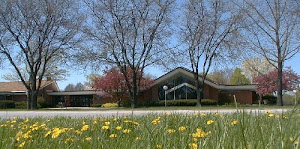Tired of seeing the same old boring experiments every year at the school fair? Or do you have an idea -- but no clue about how to do the research and write up? Check out these sites for inspiration and guidance. Then -- go to the MATH HELP posting to find cool way to do grafts and charts to go along with your presentation.
Science Fair Central from Discovery Education @ http://school.discoveryeducation.com/sciencefaircentral/elmers/250projectideas.html
250 Science Project Ideas sponsored by Elmer’s Glue.
Also check out http://www.cdli.ca/sciencefairs/ for hundreds more ideas. Both of these sites feature lists of usable ideas. You will have to do the research yourself once you are inspired.
The Science Club @ http://scienceclub.org/
This site offers science project ideas for all levels. In addition, direct links are provided to “Ask a Scientist” sites. Samples of these links include those sponsored by Argonne National Laboratory and Scientific Americans. Check out the “Fun Science Sites”.
Special Note: Here is a direct link to a page at the Science Club site that gives you an easy explanation of how to think about a project, including forming a hypothesis and dreaming up experiments. http://scienceclub.org/~sciclub/cgi-bin/scifair/hint.html
Authored by a non-profit educational corporation.
The Free Science Fair Projects Network @
http://www.free-science-fair-projects.com/science-project-basics.aspx
Another direct link to great explanations of how to start and lay out your science project. Questions answered include: what is the research question, what is a hypothesis, how to gather materials, how to write up the procedure, how to read results, and how to write a conclusion.
More Sites to Inspire Your Science Fair Project:
CyberFair @ http://www.isd77.k12.mn.us/resources/cf/
A directory of virtual online science fair exhibits.
Exploratorium Science Snacks @ http://www.exploratorium.edu/snacks/
Miniature versions of some of the most popular exhibits at the Exploratorium Science Museum in San Francisco. Directions for creating your own exhibits and experiments at home. Experiment with polarized sunglasses, create laser Jell-O, and find out why milk makes you sick!
HOWTOONS @ http://www.howtoons.com/
Howtoons are cartoons that show kids of all ages "How To" build things. Each illustrated episode is a stand-alone fun adventure accessible to all. Saul Griffith and Joost Bonsen started and incubated the Howtoons Project while graduate students at MIT. At this site you will see a blog featuring unusual inventions and cool links to science sites. Graphic comic-type illustrations guide you to articles and links about space, bubbles, nature, drawing, and more!
Resources for Librarians, Parents, and Teachers looking for additional fun science activities that are interactive. Possible uses: After-school science club, virtual science club, or science tournaments.
Kinetic City @ http://www.kineticcity.com/
Kinetic City, Mission to Vearth: provides an interesting and coherent set of science activities structured within the framework of an adventure game. Students learn fundamental science concepts through online and hands-on 'missions,' which utilize a variety of teaching strategies, cleverly adapting real-world issues (pollution, energy consumption) to a virtual setting. For Grades 3-5
OLOGY @ http://www.ology.amnh.org/
Presented by the American Museum of Natural History for kids ages seven through twelve, is based on the premise that "everyone wants to know something," and is designed as a place for kids to explore, ask questions, get answers, meet Ologists, play games, and see what other kids are interested in. With age-appropriate content in archaeology, astronomy, biodiversity, genetics, marine biology, paleontology, and physical science.
Urban Bird Studies @ http://www.birds.cornell.edu/programs/urbanbirds/index.html
As they learn about birds, students can collect data for research projects, becoming members of an international community of scientists. Games and activities. Good for answering questions about how do I collect data for experiments or to supplement nature programs.
Subscribe to:
Post Comments (Atom)


No comments:
Post a Comment